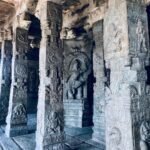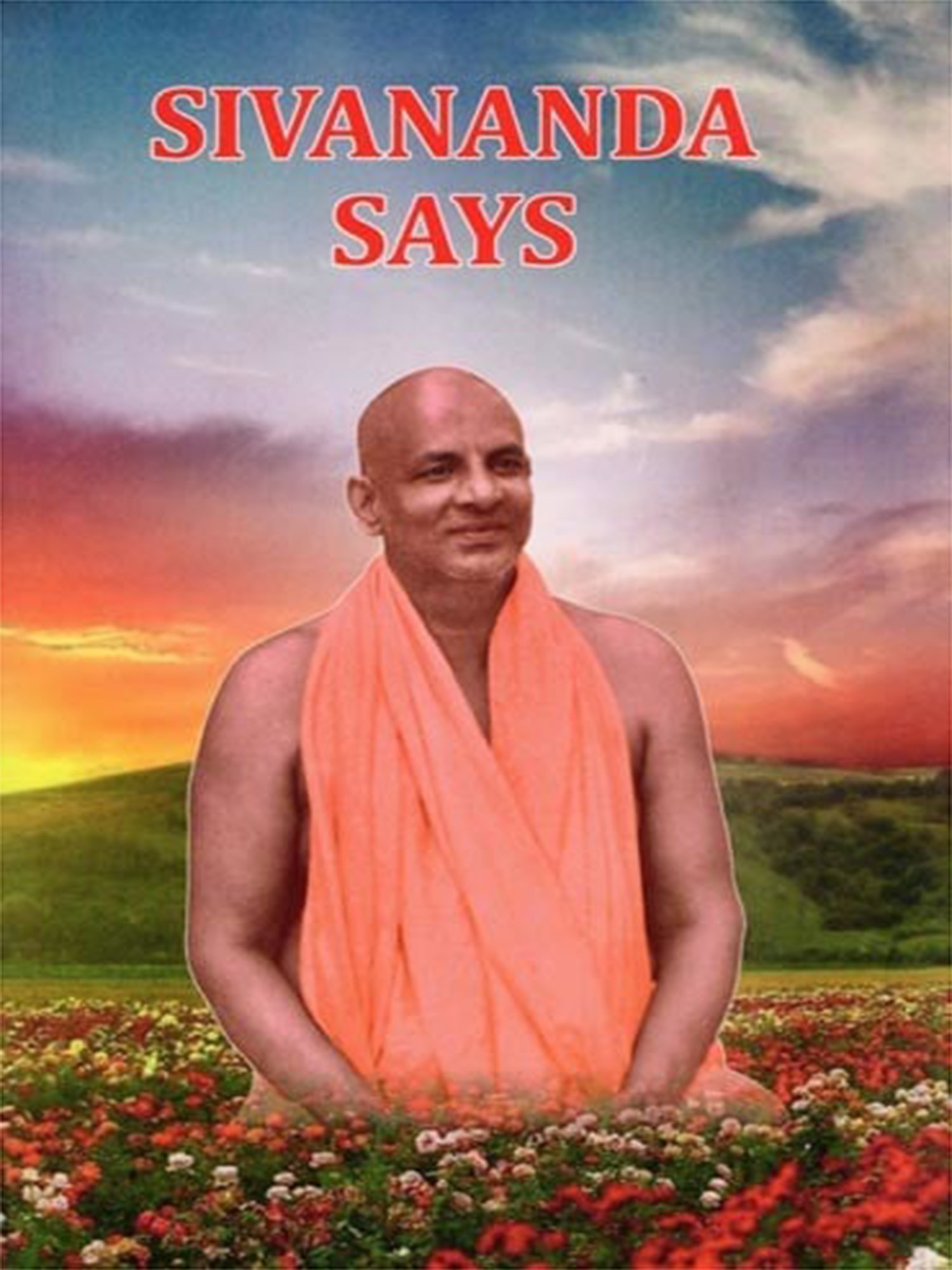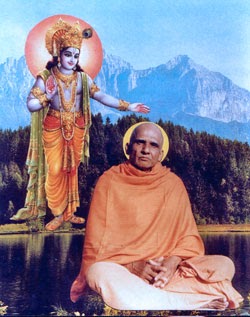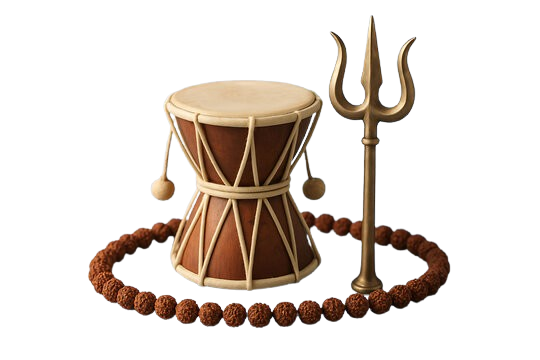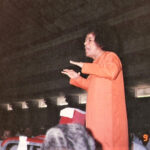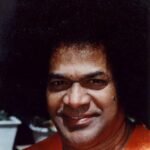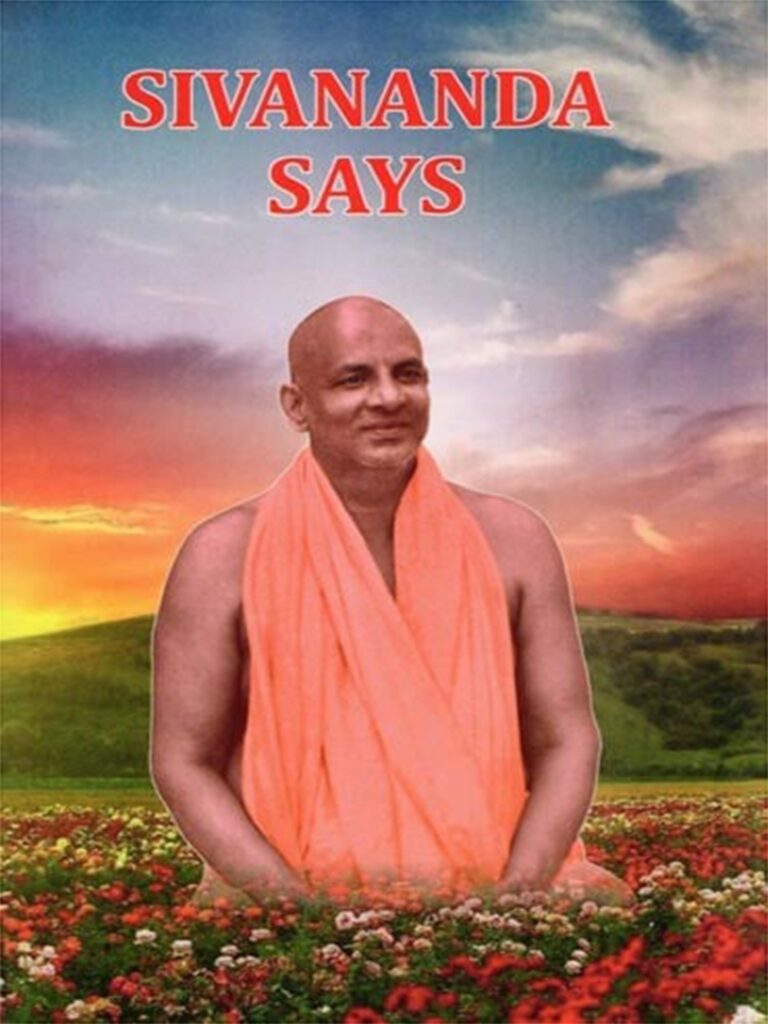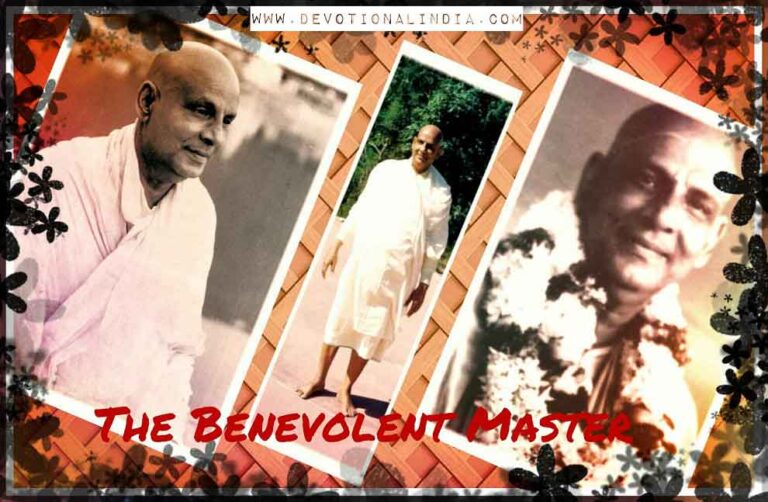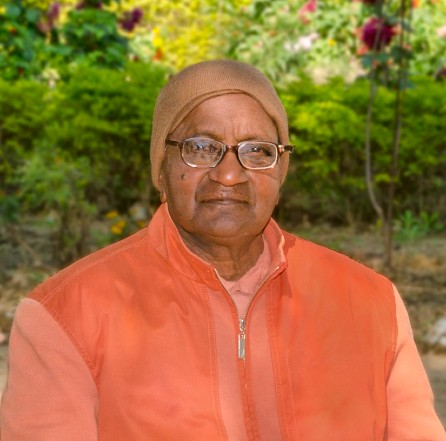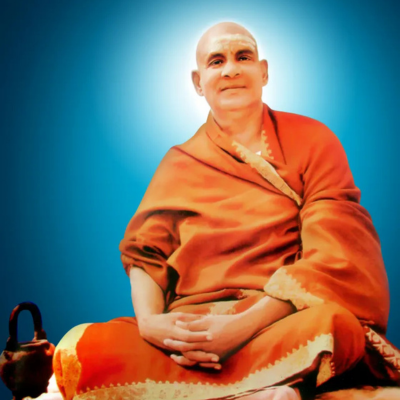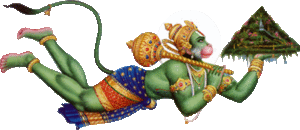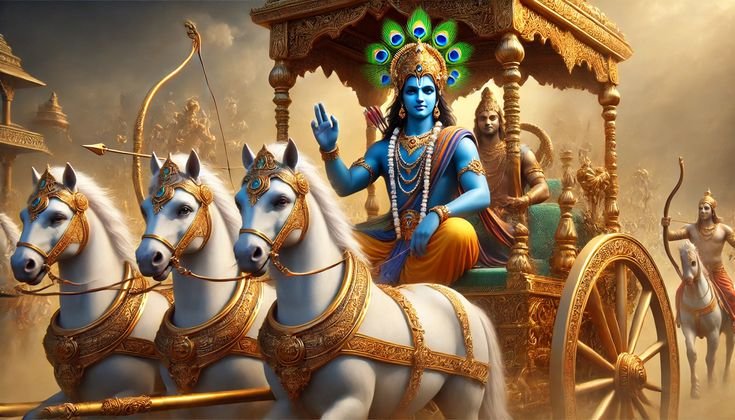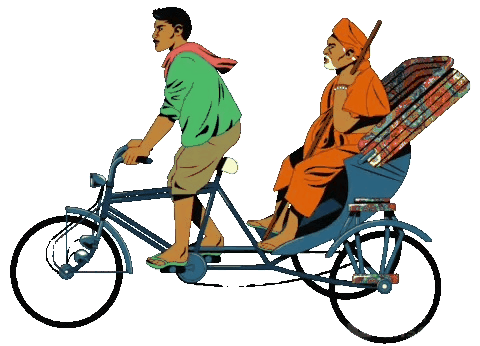Chapter Four
Chapter 4
Jnana Karma Sanyasa Yoga
The fourth chapter of the Bhagavad Gita is “Jnana Karma Sanyasa Yoga”. In this chapter, Krishna glorifies the Karma Yoga and imparts the Transcendental Knowledge (the knowledge of the soul and the Ultimate Truth) to Arjuna. He reveals the reason behind his appearance in this material world. He reveals that even though he is eternal, he reincarnates time after time to re-establish dharma and peace on this Earth. His births and activities are eternal and are never contaminated by material flaws. Those persons who know and understand this Truth engage in his devotion with full faith and eventually attain Him. They do not have to take birth in this world again.
Bhagavad Gita 4.1
श्री भगवानुवाच इमं विवस्वते योगं प्रोक्तवानहमव्ययम्। विवस्वान् मनवे प्राह मनुरिक्ष्वाकवेऽब्रवीत्।।4.1।।
śhrī bhagavān uvācha imaṁ vivasvate yogaṁ proktavān aham avyayam vivasvān manave prāha manur ikṣhvākave ’bravīt
śhrī-bhagavān uvācha—the Supreme Lord Shree Krishna said; imam—this; vivasvate—to the Sun-god; yogam—the science of Yog; proktavān—taught; aham—I; avyayam—eternal; vivasvān—Sun-god; manave—to Manu, the original progenitor of humankind; prāha—told; manuḥ—Manu; ikṣhvākave—to Ikshvaku, first king of the Solar dynasty; abravīt—instructed
Translation
The Blessed Lord said, “I taught this imperishable Yoga to Vivasvan; he then told it to Manu; Manu proclaimed it to Ikshvaku.
Commentary
4.1 इमम् this? विवस्वते to Vivasvan? योगम् Yoga? प्रोक्तवान् taught? अहम् I? अव्ययम् imperishable? विवस्वान् Vivasvan? मनवे to Manu? प्राह taught? मनुः Manu? इक्ष्वाकवे to Ikshvaku? अब्रवीत् taught.Commentary Vivasvan means the sun. Ikshvaku was the son of Manu. Ikshvaku was the reputed ancestor of the solar dynasty of Kshatriyas.This Yoga is said to be imperishable because the result or fruit? i.e.? Moksha? that can be attained through it is imperishable.If the rulers of dominions possess a knowledge of the Yoga taught by Me in the preceding two discourses? they can protect the Brahmanas and rule their kingdom with justice. So I taught this Yoga to the Sungod in the beginning of evolution.
Bhagavad Gita 4.2
एवं परम्पराप्राप्तमिमं राजर्षयो विदुः। स कालेनेह महता योगो नष्टः परन्तप।।4.2।।
evaṁ paramparā-prāptam imaṁ rājarṣhayo viduḥ sa kāleneha mahatā yogo naṣhṭaḥ parantapa
evam—thus; paramparā—in a continuous tradition; prāptam—received; imam—this (science); rāja-ṛiṣhayaḥ—the saintly kings; viduḥ—understood; saḥ—that; kālena—with the long passage of time; iha—in this world; mahatā—great; yogaḥ—the science of Yog; naṣhṭaḥ—lost; parantapa—Arjun, the scorcher of foes
Translation
This, handed down in regular succession by the royal sages, was known. This Yoga, however, has been lost here over time, O Parantapa (burner of the foes).
Commentary
4.2 एवम् thus? परम्पराप्राप्तम् handed down in regular succession? इमम् this? राजर्षयः the royal sages? विदुः knew? सः this? कालेन by lapse of time? इह here? महता by long? योगः Yoga? नष्टः destroyed? परन्तप O Parantapa.Commentary The royal sages Men who were kings and at the same time sages also? learnt this Yoga.Arjuna could burn or harass his foes? like the sun? by the heat of his valour and power. Hence the name Parantapa.
Bhagavad Gita 4.3
स एवायं मया तेऽद्य योगः प्रोक्तः पुरातनः। भक्तोऽसि मे सखा चेति रहस्यं ह्येतदुत्तमम्।।4.3।।
sa evāyaṁ mayā te ’dya yogaḥ proktaḥ purātanaḥ bhakto ’si me sakhā cheti rahasyaṁ hyetad uttamam
saḥ—that; eva—certainly; ayam—this; mayā—by me; te—unto you; adya—today; yogaḥ—the science of Yog; proktaḥ—reveal; purātanaḥ—ancient; bhaktaḥ—devotee; asi—you are; me—my; sakhā—friend; cha—and; iti—therefore; rahasyam—secret; hi—certainly; etat—this; uttamam—supreme
Translation
That same ancient yoga has been today taught to you by me, for you are my devotee and my friend; it is the supreme secret.
Commentary
4.3 सः that? एव even? अयम् this? मया by Me? ते to thee? अद्य today? योगः Yoga? प्रोक्तः has been taught? पुरातनः ancient? भक्तः devotee? असि thou art? मे My? सखा friend? च and? इति thus? रहस्यम् secret? हि for? एतत् this? उत्तमम् best.Commentary This Yoga contains profound and subtle teachings. Hence it is the supreme secret which is revealed by the Lord.
Bhagavad Gita 4.4
अर्जुन उवाच अपरं भवतो जन्म परं जन्म विवस्वतः। कथमेतद्विजानीयां त्वमादौ प्रोक्तवानिति।।4.4।।
arjuna uvācha aparaṁ bhavato janma paraṁ janma vivasvataḥ katham etad vijānīyāṁ tvam ādau proktavān iti
arjunaḥ uvācha—Arjun said; aparam—later; bhavataḥ—your; janma—birth; param—prior; janma—birth; vivasvataḥ—Vivasvan, the sun-god; katham—how; etat—this; vijānīyām—am I to understand; tvam—you; ādau—in the beginning; proktavān—taught; iti—thus
Translation
Arjuna said, “Later was Thy birth, and prior to it was the birth of Vivasvan (the Sun); how am I to understand that Thou hast taught this Yoga from the beginning?”
Commentary
4.4 अपरम् later? भवतः Thy? जन्म birth? परम् prior? जन्म birth? विवस्वतः of Vivasvan? कथम् how? एतत् this? विजानीयाम् am I to understand? त्वम् Thou? आदौ in the beginning? प्रोक्तवान् taughtest? इत thus.Commentary Thy birth took place later in the hourse of Vasudeva Vivasvan or Vivasvat (the Sun) was born earlier in the beginning of evolution. How am I to believe that Thou taughtest this Yoga in the beginning to Vivasvan? and that Thou? the selfsame person? hast now taught it to me I am not able to reconcile this. Be kind enought to enlighten me? O my Lord.
Bhagavad Gita 4.5
श्री भगवानुवाच बहूनि मे व्यतीतानि जन्मानि तव चार्जुन। तान्यहं वेद सर्वाणि न त्वं वेत्थ परन्तप।।4.5।।
śhrī bhagavān uvācha bahūni me vyatītāni janmāni tava chārjuna tānyahaṁ veda sarvāṇi na tvaṁ vettha parantapa
śhrī-bhagavān uvācha—the Supreme Lord said; bahūni—many; me—of mine; vyatītāni—have passed; janmāni—births; tava—of yours; cha—and; arjuna—Arjun; tāni—them; aham—I; veda—know; sarvāṇi—all; na—not; tvam—you; vettha—know; parantapa—Arjun, the scorcher of foes
Translation
The Blessed Lord said, “Many births of Mine have passed, as well as of thine, O Arjuna; I know them all, but thou knowest not, O Parantapa (scorcher of foes).”
Commentary
4.5 बहूनि may? मे My? व्यतीतानि have passed away? जन्मानि births? तव thy? च and? अर्जुन O Arjuna? तानि them? अहम् I? वेद know? सर्वाणि all? न not? त्वम् thou? वेत्थ knowest? परन्तप O Parantapa.Commentary You have no intuitional knowledge. The eye of wisdom has not been opened in you on account of your past actions. So your power of vision is limited and therefore you do not know your previous births. But I know them because I am omniscient.
Bhagavad Gita 4.6
अजोऽपि सन्नव्ययात्मा भूतानामीश्वरोऽपि सन्। प्रकृतिं स्वामधिष्ठाय संभवाम्यात्ममायया।।4.6।।
ajo ’pi sannavyayātmā bhūtānām īśhvaro ’pi san prakṛitiṁ svām adhiṣhṭhāya sambhavāmyātma-māyayā
ajaḥ—unborn; api—although; san—being so; avyaya ātmā—Imperishable nature; bhūtānām—of (all) beings; īśhvaraḥ—the Lord; api—although; san—being; prakṛitim—nature; svām—of myself; adhiṣhṭhāya—situated; sambhavāmi—I manifest; ātma-māyayā—by my Yogmaya power
Translation
Though I am unborn and of imperishable nature, and though I am the Lord of all beings, yet, governing my own nature, I am born by my own Maya.
Commentary
4.6 अजः unborn? अपि also? सन् being? अव्ययात्मा of imperishable nature? भूतानाम् of beings? ईश्वरः the Lord? अपि also? सन् being? प्रकृतिम् Nature? स्वाम् My own? अधिष्ठाय governing? संभवामि come into being? आत्ममायया by My own Maya.Commentary Man is bound by Karma. So he takes birth. He is under the clutches of Nature. He,is deluded by the three alities of Nature whereas the Lord has Maya under His perfect control. He rules over Nature? and so He is not under the thraldom of the alities o Nature. He appears to be born and embodied through His own Maya or illusory power? but is not so in reality. His embodiment is ? as a matter of fact? apparent? It cannot affect in the least His true divine nature. (Cf.IX.8).
Bhagavad Gita 4.7
यदा यदा हि धर्मस्य ग्लानिर्भवति भारत। अभ्युत्थानमधर्मस्य तदाऽऽत्मानं सृजाम्यहम्।।4.7।।
yadā yadā hi dharmasya glānir bhavati bhārata abhyutthānam adharmasya tadātmānaṁ sṛijāmyaham
yadā yadā—whenever; hi—certainly; dharmasya—of righteousness; glāniḥ—decline; bhavati—is; bhārata—Arjun, descendant of Bharat; abhyutthānam—increase; adharmasya—of unrighteousness; tadā—at that time; ātmānam—self; sṛijāmi—manifest; aham—I
Translation
Whenever there is a decline of righteousness and an increase of unrighteousness, O Arjuna, then I manifest Myself.
Commentary
4.7 यदा यदा whenever? हि surely? धर्मस्य of righteousness? ग्लानिः decline? भवति is? भारत O Bharata? अभ्युत्थानम् rise? अधर्मस्य of unrighteousness? तदा then? आत्मानम् Myself? सृजामि manifest? अहम् I.Commentary Dharma is that which sustains and holds together. There is no proper eivalen for this term in the English language. That which helps a man to attain to Moksha or salvation is Dharma. That which makes a man irreligious or unrighteous is Adharma. That which elevates a man and helps him reach the goal of life and attain knowledge is Dharma that which drags him and hurls him down in the abyss of worldliness and ignorance is
Bhagavad Gita 4.8
परित्राणाय साधूनां विनाशाय च दुष्कृताम्। धर्मसंस्थापनार्थाय संभवामि युगे युगे।।4.8।।
paritrāṇāya sādhūnāṁ vināśhāya cha duṣhkṛitām dharma-sansthāpanārthāya sambhavāmi yuge yuge
paritrāṇāya—to protect; sādhūnām—the righteous; vināśhāya—to annihilate; cha—and; duṣhkṛitām—the wicked; dharma—the eternal religion; sansthāpana-arthāya—to reestablish; sambhavāmi—I appear; yuge yuge—age after age
Translation
For the protection of the good, for the destruction of the wicked, and for the establishment of righteousness, I am born in every age.
Commentary
4.8 परित्राणाय for the protection? साधूनाम् of the good? विनाशाय for the destruction? च and? दुष्कृताम् of the wicked? धर्मसंस्थापनार्थाय for the establishment of righteousness? संभवामि (I) am born? युगे युगे in every age.Commentary Sadhunam The good who lead a life of righteousness? who utiles their bodies in the service of humanity? who are free from selfishness? lust and greed? and who devote their lives to divine contemplation.Dushkritam Evildoers who lead a life of unrighteousness? who break the laws of the society? who are vain and are dishonest and greedy? who injure others? who take possession of the property of others by force? and who commit atrocious crimes of various sorts.
Bhagavad Gita 4.9
जन्म कर्म च मे दिव्यमेवं यो वेत्ति तत्त्वतः। त्यक्त्वा देहं पुनर्जन्म नैति मामेति सोऽर्जुन।।4.9।।
janma karma cha me divyam evaṁ yo vetti tattvataḥ tyaktvā dehaṁ punar janma naiti mām eti so ’rjuna
janma—birth; karma—activities; cha—and; me—of mine; divyam—divine; evam—thus; yaḥ—who; vetti—know; tattvataḥ—in truth; tyaktvā—having abandoned; deham—the body; punaḥ—again; janma—birth; na—never; eti—takes; mām—to me; eti—comes; saḥ—he; arjuna—Arjun
Translation
He who thus knows, in their true light, My divine birth and actions, having abandoned the body, is not born again; he comes to Me, O Arjuna.
Commentary
4.9 जन्म birth? कर्म action? च and? मे My? दिव्यम् divine? एवम् thus? यः who? वेत्ति knows? तत्त्वतः in true light? त्यक्त्वा having abandoned? देहम् the body? पुनः again? जन्म birth? नः not? एति gets? माम् to Me? एति comes? सः he? अर्जुन O Arjuna.Commentary The Lord? though apparently born? is always beyond birth and death though apparently active for firmly establishing righteousness? He is ever beyond all actions. He who knows this is never born again. He attains knowledge of the Self and becomes liberated while living.The birth of the Lord is an illusion. It is Aprakrita (beyond the pale of Nature). It is divine. It is peculiar to the Lord. Though He appears in human form? His body is Chinmaya (full of consciousness? not inert matter as are human bodies composed of the five elements).
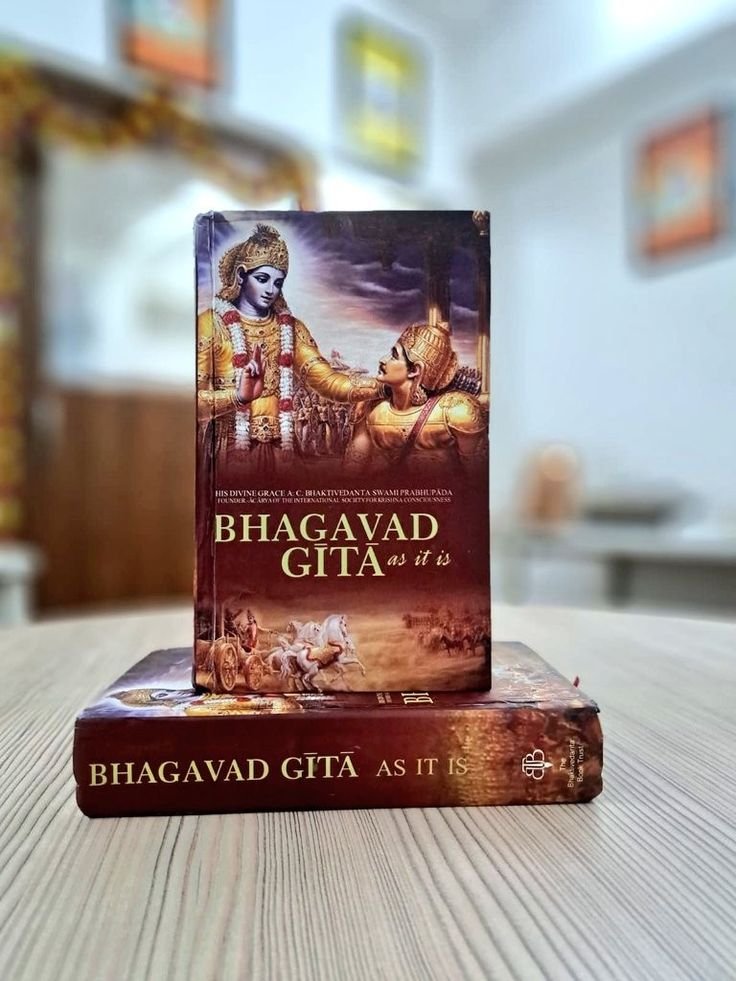
Bhagavad Gita 4.10
वीतरागभयक्रोधा मन्मया मामुपाश्रिताः। बहवो ज्ञानतपसा पूता मद्भावमागताः।।4.10।।
vīta-rāga-bhaya-krodhā man-mayā mām upāśhritāḥ bahavo jñāna-tapasā pūtā mad-bhāvam āgatāḥ
vīta—freed from; rāga—attachment; bhaya—fear; krodhāḥ—and anger; mat-mayā—completely absorbed in me; mām—in me; upāśhritāḥ—taking refuge (of); bahavaḥ—many (persons); jñāna—of knowledge; tapasā—by the fire of knowledge; pūtāḥ—purified; mat-bhāvam—my divine love; āgatāḥ—attained
Translation
Freed from attachment, fear, and anger, absorbed in Me, taking refuge in Me, purified by the fire of knowledge, many have attained My Being.
Commentary
4.10 वीतरागभयक्रोधाः freed from attachment? fear and anger? मन्मयाः absorbed in Me? माम् Me? उपाश्रिताः taking refuge in? बहवः many? ज्ञानतपसा by the fire of knowledge? पूताः purified? मद्भावम् My Being? आगताः have attained.Commentary When one gets knowledge of the Self? attachment to senseobjects ceases. When he realises he is the constant? indestructible? eternal Self and that change is simply a ality of the body? then he becomes fearless. When he becomes desireless? when he is free from selfishness? when he beholds the Self only everywhere? how can anger arise in himHe who takes refuge in Brahman or the Absolute becomes firmly devoted to Him. He becomes,absorbed in Him (Brahmalina or Brahmanishtha). Jnanatapas is the fire of wisdom. Just as fire burns cotton? so also this Jnanatapas burns all the latent tendencies (Vasanas)? cravings (Trishnas)? mental impressions (Samskaras)? sins and all actions? and purifies the aspirants. (Cf.II.56IV.19to37).
Bhagavad Gita 4.11
ये यथा मां प्रपद्यन्ते तांस्तथैव भजाम्यहम्। मम वर्त्मानुवर्तन्ते मनुष्याः पार्थ सर्वशः।।4.11।।
ye yathā māṁ prapadyante tāns tathaiva bhajāmyaham mama vartmānuvartante manuṣhyāḥ pārtha sarvaśhaḥ
ye—who; yathā—in whatever way; mām—unto me; prapadyante—surrender; tān—them; tathā—so; eva—certainly; bhajāmi—reciprocate; aham—I; mama—my; vartma—path; anuvartante—follow; manuṣhyāḥ—men; pārtha—Arjun, the son of Pritha; sarvaśhaḥ—in all respects
Translation
In whatever way men approach Me, even so do I reward them; My path do men tread in all ways, O Arjuna.
Commentary
4.11 ये who? यथा in whatever way? माम् Me? प्रपद्यन्ते approach? तान् them? तथा so? एव even? भजामि reward? अहम् I? मम My? वर्त्म path? अनुवर्तन्ते follow? मनुष्याः men? पार्थ O Partha? सर्वशः in all ways.Commentary I reward men by bestowing on them the objects they desire in accordance with their ways and the motives with which they seek Me. If anyone worships Me with selfish motives I grant him the objects he desires. If he worships Me unselfishly for attaining knowledge of the Self? I grant him Moksha or final liberation. I am not at all partial to anyone. (Cf.VII.21andIX.23).
Bhagavad Gita 4.12
काङ्क्षन्तः कर्मणां सिद्धिं यजन्त इह देवताः। क्षिप्रं हि मानुषे लोके सिद्धिर्भवति कर्मजा।।4.12।।
kāṅkṣhantaḥ karmaṇāṁ siddhiṁ yajanta iha devatāḥ kṣhipraṁ hi mānuṣhe loke siddhir bhavati karmajā
kāṅkṣhantaḥ—desiring; karmaṇām—material activities; siddhim—success; yajante—worship; iha—in this world; devatāḥ—the celestial gods; kṣhipram—quickly; hi—certainly; mānuṣhe—in human society; loke—within this world; siddhiḥ—rewarding; bhavati—manifest; karma-jā—from material activities
Translation
Those who long for success in action in this world sacrifice to the gods; for success is quickly attained by men through action.
Commentary
4.12 काङ्क्षन्तः those who long for? कर्मणाम् of actions? सिद्धिम् success? यजन्ते sacrifice? इह in this world? देवताः gods? क्षिप्रम् ickly? हि because? मानुषे in the human? लोके (in the) world? सिद्धिः success? भवति is attained? कर्मजा born of action.Commentary It is very difficult to attain to the knowledge of the Self or Selfrealisation. It demans perfect renunciation. The aspirnat should possess the four means and many other virtues? and practise constant and intense meditaion. But worldly success can be attained ickly and easily.
Bhagavad Gita 4.13
चातुर्वर्ण्यं मया सृष्टं गुणकर्मविभागशः। तस्य कर्तारमपि मां विद्ध्यकर्तारमव्ययम्।।4.13।।
chātur-varṇyaṁ mayā sṛiṣhṭaṁ guṇa-karma-vibhāgaśhaḥ tasya kartāram api māṁ viddhyakartāram avyayam
chātuḥ-varṇyam—the four categories of occupations; mayā—by me; sṛiṣhṭam—were created; guṇa—of quality; karma—and activities; vibhāgaśhaḥ—according to divisions; tasya—of that; kartāram—the creator; api—although; mām—me; viddhi—know; akartāram—non-doer; avyayam—unchangeable
Translation
The fourfold caste has been created by Me according to the differentiation of Guna and Karma; though I am the author of it, know Me as non-doer and immutable.
Commentary
4.13 चातुर्वर्ण्यम् the fourfold caste? मया be Me? सृष्टम् has been created? गुणकर्मविभागशः according to the differentiation of Guna and Karma? तस्य thereof? कर्तारम् the author? अपि also? माम् Me? विद्धि know? अकर्तारम् nondoer? अव्ययम् immutable.Commentary The four castes (Brahmana? Kshatriya? Vaishya and Sudra) are classified according to the differentiation of Guna and Karma. In a Brahmana? Sattva predominates. He possesses selfrestraint? purity? serenity? straightforwardness? devotion? etc. In a Kshatriya? Rajs predominates. He possesses prowess? splendour? firmness? dexterity? generosity and the nature of a ruler. In a Vaishya? Rajas predominates and Tamas is subordinate to Rajas. He does the duty of ploughing? protection of cattle and trade. In a Sudra Tamas predominates and Rajas is subordinateto Tamas. He does service to the other three castes. Human temperaments and tendencies vary according to the Gunas.Though the Lord is the author of the caste system? yet He is not the author as He is the nondoer. He is not subject to Samsara. Really Maya does everything. Maya is the real author. Society can exist in a flourishing state if the four castes do their duties properly. Otherwise there will be chaos? rupture and fighting. (Cf.XVIII.41).
Bhagavad Gita 4.14
न मां कर्माणि लिम्पन्ति न मे कर्मफले स्पृहा। इति मां योऽभिजानाति कर्मभिर्न स बध्यते।।4.14।।
na māṁ karmāṇi limpanti na me karma-phale spṛihā iti māṁ yo ’bhijānāti karmabhir na sa badhyate
na—not; mām—me; karmāṇi—activities; limpanti—taint; na—nor; me—my; karma-phale—the fruits of action; spṛihā—desire; iti—thus; mām—me; yaḥ—who; abhijānāti—knows; karmabhiḥ—result of action; na—never; saḥ—that person; badhyate—is bound
Translation
Actions do not taint Me, nor do I have a desire for the fruit of actions. He who knows Me thus is not bound by actions.
Commentary
4.14 न not? माम् Me? कर्माणि actions? लिम्पन्ति taint? न not? मे to Me? कर्मफले in the fruit of actions? स्पृहा desire? इति thus? माम् Me? यः who? अभिजानाति knows? कर्मभिः by actions? न not? सः he? बध्यते is bound.Commentary As I have neither egoism nor desire for fruits? I am not bound by actions. Wordly people think they are the agents and they perfrom actions. They also expect fruits for their actions. So they take birth again and again. If one works without attachment? without egoism? without expectation of fruits? he too will not be bound by actions. He will be freed from birth and death. (Cf.IX.9).
Bhagavad Gita 4.15
एवं ज्ञात्वा कृतं कर्म पूर्वैरपि मुमुक्षुभिः। कुरु कर्मैव तस्मात्त्वं पूर्वैः पूर्वतरं कृतम्।।4.15।।
evaṁ jñātvā kṛitaṁ karma pūrvair api mumukṣhubhiḥ kuru karmaiva tasmāttvaṁ pūrvaiḥ pūrvataraṁ kṛitam
evam—thus; jñātvā—knowing; kṛitam—performed; karma—actions; pūrvaiḥ—of ancient times; api—indeed; mumukṣhubhiḥ—seekers of liberation; kuru—should perform; karma—duty; eva—certainly; tasmāt—therefore; tvam—you; pūrvaiḥ—of those ancient sages; pūrva-taram—in ancient times; kṛitam—performed
Translation
Having known this, the ancient seekers of freedom also performed action; therefore, do thou also perform action, as the ancients did in days of yore.
Commentary
4.15 एवं thus? ज्ञात्वा having known? कृतम् (was) done? कर्म action? पूर्वैः by ancients? अपि also? मुमुक्षुभिः seekers after freedom? कुरु perform? कर्म action? एव even? तस्मात् therefore? त्वम् thou? पूर्वैः by ancients?,पूर्वतरम् in the olden time? कृतम् done.Commentary Knowing thus that the Self can have no desire for the fruits of actions and cannot be tainted by them? and knowing that no one can be tainted if he works without egoism? attachment and expectation of fruits? do thou perform your duty.If your heart is impure? perform actions for its purification. If you have attained AtmaJnana or the knowledge of the Self? work for the wellbeing of the world. The ancients such as Janaka and others performed actions in the days of yore. So do thou also perform action.
Bhagavad Gita 4.16
किं कर्म किमकर्मेति कवयोऽप्यत्र मोहिताः। तत्ते कर्म प्रवक्ष्यामि यज्ज्ञात्वा मोक्ष्यसेऽशुभात्।।4.16।।
kiṁ karma kim akarmeti kavayo ’pyatra mohitāḥ tat te karma pravakṣhyāmi yaj jñātvā mokṣhyase ’śhubhāt
kim—what; karma—action; kim—what; akarma—inaction; iti—thus; kavayaḥ—the wise; api—even; atra—in this; mohitāḥ—are confused; tat—that; te—to you; karma—action; pravakṣhyāmi—I shall explain; yat—which; jñātvā—knowing; mokṣhyase—you may free yourself; aśhubhāt—from inauspiciousness
Translation
What is action? What is inaction? Even the wise are confused about this. Therefore, I shall teach you the nature of action and inaction, by knowing which you will be liberated from the evil of Samsara, the wheel of birth and death.
Commentary
4.16 किम् what? कर्म action? किम् what? अकर्म inaction? इति thus? कवयः wise? अपि also? अत्र in this? मोहिताः (are) deluded? तत् that? ते to thee? कर्म action? प्रवक्ष्यामि (I) shall teach? यत् which? ज्ञात्वा having known? मोक्ष्यसे (thou) shalt be liberated? अशुभात् from evil.No Commentary.
Bhagavad Gita 4.17
कर्मणो ह्यपि बोद्धव्यं बोद्धव्यं च विकर्मणः। अकर्मणश्च बोद्धव्यं गहना कर्मणो गतिः।।4.17।।
karmaṇo hyapi boddhavyaṁ boddhavyaṁ cha vikarmaṇaḥ akarmaṇaśh cha boddhavyaṁ gahanā karmaṇo gatiḥ
karmaṇaḥ—recommended action; hi—certainly; api—also; boddhavyam—should be known; boddhavyam—must understand; cha—and; vikarmaṇaḥ—forbidden action; akarmaṇaḥ—inaction; cha—and; boddhavyam—must understand; gahanā—profound; karmaṇaḥ—of action; gatiḥ—the true path
Translation
For verily, the true nature of action enjoined by the scriptures should be known, as well as that of forbidden or unlawful action, and of inaction; the nature of action is hard to understand.
Commentary
4.17 कर्मणः of action? हि for? अपि also? बोद्धव्यम् should be known? बोद्धव्यम् should be known? च and? विकर्मणः of the forbidden action? अकर्मणः of inaction? च and? बोद्धव्यम् should be known? गहना deep? कर्मणः of action? गतिः the path.No Commentary.
Bhagavad Gita 4.18
कर्मण्यकर्म यः पश्येदकर्मणि च कर्म यः। स बुद्धिमान् मनुष्येषु स युक्तः कृत्स्नकर्मकृत्।।4.18।।
karmaṇyakarma yaḥ paśhyed akarmaṇi cha karma yaḥ sa buddhimān manuṣhyeṣhu sa yuktaḥ kṛitsna-karma-kṛit
karmaṇi—action; akarma—in inaction; yaḥ—who; paśhyet—see; akarmaṇi—inaction; cha—also; karma—action; yaḥ—who; saḥ—they; buddhi-mān—wise; manuṣhyeṣhu—amongst humans; saḥ—they; yuktaḥ—yogis; kṛitsna-karma-kṛit—performers all kinds of actions
Translation
He who sees inaction in action and action in inaction, he is wise among men; he is a yogi and performer of all actions.
Commentary
4.18 कर्मणि in action? अकर्म inaction? यः who? पश्येत् would see? अकर्मणि in inaction? च and? कर्म action? यः who? सः he? बुद्धिमान् wise? मनुष्येषु among men? सः he? युक्तः Yogi? कृत्स्नकर्मकृत् performer of all actions.Commentary In common parlance action means movement of the body? movement of the hands and feet? and inaction means to sit iet.It is the idea of agency? the idea I am the doer that binds man to Samsara. If this idea vanishes? action is no action at all. It will not bind one to Samsara. This is inaction in action. If you stand as s spectator or silent witness of Natures activities? feeling Nature does everything I am nondoer (Akarta)? if you identify yourself with the actionless Self? no matter what work or how much of it is done? action is no action at all. This is inaction in action. By such a practice and feeling? action loses its binding nature.A man may sit ietly. He may not do anything. But if he has the idea of agency or doership? or if he thinks that he is the doer? he is every doing action? though he is sitting ietly. This is action in inaction. The restless mind will ever be doing actions even though one sits ietly. Actions of the mind are real actions. Nor can anyone even for one moment remain really actionless? for helplessly is everyone driven to action by the alities of Nature. (Chapter III.5)Inaction also induces the feeling of egoism. The inactive man says? I sit ietly I do nothing. Inaction? like action? is wrongly attributed to the Self.He is the performer of all actions who knows this truth. He has attained the end of all actions? i.e.? freedom or knowledge or perfection.When a steamer moves? the trees on the shore which are motionless? appear to move in the opposite direction to a man who is in the steamer. Moving objects that are very far away appear to be stationary or motionless. Even so in the case of the Self inaction is mistaken for action and,action for inaction.The Self is actionless (Akarta or nondoer? Nishkriya or without work).
The body and the senses perform action. The actions of the body and the senses are falsely and wrongly attributed by the ignorant to the actionless Self. Therefore the ignorant man thinks? I act. He thinks that the Self is the doer or the agent of the action. This is a mistake. This is ignorance.Just as motion does not really belong to the trees on the shore which appear to move in the opposite direction to a man on board the ship? so also action does not really pertain to the Self.This ignorance which is the cause of birth and death vanishes when you attain Selfrealisaion.
Bhagavad Gita 4.19
यस्य सर्वे समारम्भाः कामसङ्कल्पवर्जिताः। ज्ञानाग्निदग्धकर्माणं तमाहुः पण्डितं बुधाः।।4.19।।
yasya sarve samārambhāḥ kāma-saṅkalpa-varjitāḥ jñānāgni-dagdha-karmāṇaṁ tam āhuḥ paṇḍitaṁ budhāḥ
yasya—whose; sarve—every; samārambhāḥ—undertakings; kāma—desire for material pleasures; saṅkalpa—resolve; varjitāḥ—devoid of; jñāna—divine knowledge; agni—in the fire; dagdha—burnt; karmāṇam—actions; tam—him; āhuḥ—address; paṇḍitam—a sage; budhāḥ—the wise
Translation
He whose undertakings are all devoid of desires and selfish purposes, and whose actions have been burned by the fire of knowledge, the wise call him a sage.
Commentary
4.19 यस्य whose? सर्वे all? समारम्भाः undertakings? कामसङ्कल्पवर्जिताः devoid of desires and purposes? ज्ञानाग्निदग्धकर्माणम् whose actions have been burnt by the fire of knowledge? तम् him? आहुः call? पण्डितम् a sage? बुधाः the wise.Commentary A sage performs actions only with a view to set an example to the masses. Though he works? he does nothing as he has no selfish interests? as his actions are burnt by the fire of wisdom which consists in the realisaion of inaction in action? through the knowledge of the Self or BrahmaJnana. BrahmaJnana is a mighty spiritual fire which consumes the results of all kinds of actions (Karmas)? good and bad? and makes the enlightened sage ite free from the bonds of action. The sage who leads a life of perfect renunciation does only what is reired for the bare existence of his body. (Cf.III.19IV.10IV.37).
Bhagavad Gita 4.20
त्यक्त्वा कर्मफलासङ्गं नित्यतृप्तो निराश्रयः। कर्मण्यभिप्रवृत्तोऽपि नैव किञ्चित्करोति सः।।4.20।।
tyaktvā karma-phalāsaṅgaṁ nitya-tṛipto nirāśhrayaḥ karmaṇyabhipravṛitto ’pi naiva kiñchit karoti saḥ
tyaktvā—having given up; karma-phala-āsaṅgam—attachment to the fruits of action; nitya—always; tṛiptaḥ—satisfied; nirāśhrayaḥ—without dependence; karmaṇi—in activities; abhipravṛittaḥ—engaged; api—despite; na—not; eva—certainly; kiñchit—anything; karoti—do; saḥ—that person
Translation
Having abandoned attachment to the fruits of the action, ever content, depending on nothing, he does not do anything even while being engaged in activity.
Commentary
4.20 त्यक्त्वा having abandoned? कर्मफलासङ्गम् attachment to the fruits of action? नित्यतृप्तः even content? निराश्रयः depending on nothing? कर्मणि in action? अभिप्रवृत्तः engaged? अपि even? न not? एव verily? किञ्चित् anything? करोति does? सः he.Commentary The same idea of inaction in action is repeated here to produce a deep impression on the minds of the aspirants. He who works for the wellbeing of the world and he who performs actions without egoism and attachment for the fruits? to set an example to the masses? really does nothing at all though he is ever engaged in activity? as he possesses the knowledge of the Self which is beyond all activity and as he has realised his identity with It.As Brahman the Absolute is selfcontained? all the desires are gratified if one realises the Self. He is ever satisfied and does not depend on anything? just as a man who has the favour of the king does not depend on the minister or the government official for anything. (Cf.IV.41)

Bhagavad Gita 4.21
निराशीर्यतचित्तात्मा त्यक्तसर्वपरिग्रहः। शारीरं केवलं कर्म कुर्वन्नाप्नोति किल्बिषम्।।4.21।।
nirāśhīr yata-chittātmā tyakta-sarva-parigrahaḥ śhārīraṁ kevalaṁ karma kurvan nāpnoti kilbiṣham
nirāśhīḥ—free from expectations; yata—controlled; chitta-ātmā—mind and intellect; tyakta—having abandoned; sarva—all; parigrahaḥ—the sense of ownership; śhārīram—bodily; kevalam—only; karma—actions; kurvan—performing; na—never; āpnoti—incurs; kilbiṣham—sin
Translation
Without hope, controlling the mind and the self, having abandoned all covetousness, and performing only bodily actions, one incurs no sin.
Commentary
4.21 निराशीः without hope? यतचित्तात्मा one with the mind and self controlled? त्यक्तसर्वपरिग्रहः having abandoned all covetousness? शारीरम् bodily? केवलम् merely? कर्म action? कुर्वन् doing? न not? आप्नोति obtains? किल्बिषम् sin.Commentary The liberated sage renounces all actions except what is necessary for the bare maintenance of the body. He has abandoned all possessions. He incurs no sin which will cause evil effects. For a man who thirsts for liberation (Mumukshu) even righteous activity (Dharma) is a sin as it causes bondage to Samsara. Dharma is a golden fetter for him. A golden fetter is also a fetter. A sage is liberated from both Dharma and Adharma? good and evil or virtue and vice. (Cf.III.7)
Bhagavad Gita 4.22
यदृच्छालाभसन्तुष्टो द्वन्द्वातीतो विमत्सरः। समः सिद्धावसिद्धौ च कृत्वापि न निबध्यते।।4.22।।
yadṛichchhā-lābha-santuṣhṭo dvandvātīto vimatsaraḥ samaḥ siddhāvasiddhau cha kṛitvāpi na nibadhyate
yadṛichchhā—which comes of its own accord; lābha—gain; santuṣhṭaḥ—contented; dvandva—duality; atītaḥ—surpassed; vimatsaraḥ—free from envy; samaḥ—equipoised; siddhau—in success; asiddhau—failure; cha—and; kṛitvā—performing; api—even; na—never; nibadhyate—is bound
Translation
Content with what comes to him without effort, free from the pairs of opposites and envy, even-minded in success and failure, he acts yet is not bound.
Commentary
4.22 यदृच्छालाभसन्तुष्टः content with what comes to him without effort? द्वन्द्वातीतः free from the pairs of,opposites? विमत्सरः free from envy? समः evenminded? सिद्धौ in success? असिद्धौ in failure? च and? कृत्वा acting? अपि even? न not? निबध्यते is bound.Commentary The sage is ite satisfied with what comes to him by chance. In verses IV. 18? 19? 20? 22? 22 and 23 there is only a reiteration of the results of the knowledge of the Self which is beyond action. The sage who identifies himself with the actionless Self is not bound as action and its cause which bind one to the round of birth and death have been burnt in the fire of the knowledge of the Self or BrahmaJnana. Just as a seed burnt in the fire cannot germinate? so also the Karmas or actions burnt by the fire of knowledge of the Self cannot produce future birth.Ordinary people think that the sage is also a doer of actions? an agent? active and therefore bound? when they see him doing actions. This is a mistake. From his own point of view and? in truth? he is not an agent at all. He really does no action at all. He feels and says? I do nothing at all. Nature does or the three alities of Nature do everything.He is not affected by heat and cold? pleasure and pain? success and failure? as he always has a balanced state of mind. He is not attached even to the things which are necessary for the bare maintenance of his body. He experiences neither pleasure nor pain? whether or not he obtains food and the other things which are reired for the maintenance of his body. The reason is that he is resting in his essential nature as ExistenceKnowledgeBliss Absolute (SatchidanandaSvarupa) he is swimming in the ocean of bliss. So he does not care for his body and its needs.
Bhagavad Gita 4.23
गतसङ्गस्य मुक्तस्य ज्ञानावस्थितचेतसः। यज्ञायाचरतः कर्म समग्रं प्रविलीयते।।4.23।।
gata-saṅgasya muktasya jñānāvasthita-chetasaḥ yajñāyācharataḥ karma samagraṁ pravilīyate
gata-saṅgasya—free from material attachments; muktasya—of the liberated; jñāna-avasthita—established in divine knowledge; chetasaḥ—whose intellect; yajñāya—as a sacrifice (to God); ācharataḥ—performing; karma—action; samagram—completely; pravilīyate—are freed
Translation
To one who is devoid of attachment, who is liberated, whose mind is established in knowledge, and who works for the sake of sacrifice (for the sake of God), the whole action is dissolved.
Commentary
4.23 गतसङ्गस्य one who is devoid of attachment? मुक्तस्य of the liberated? ज्ञानावस्थितचेतसः whose mind is established in knowledge? यज्ञाय for sacrifice? आचरतः acting? कर्म action? समग्रम् whole? प्रविलीयते is dissolved.Commentary One who is free from attachment? who is liberated from the bonds of Karma? whose mind is centred and rooted in wisdom? who performs actions for the sake of sacrifice? in order to please the Lord — all his actions with their results melt away. His actions are reduced to nothing. They are? in fact? no actions at all.
Bhagavad Gita 4.24
ब्रह्मार्पणं ब्रह्महविर्ब्रह्माग्नौ ब्रह्मणा हुतम्। ब्रह्मैव तेन गन्तव्यं ब्रह्मकर्मसमाधिना।।4.24।।
brahmārpaṇaṁ brahma havir brahmāgnau brahmaṇā hutam brahmaiva tena gantavyaṁ brahma-karma-samādhinā
brahma—Brahman; arpaṇam—the ladle and other offerings; brahma—Brahman; haviḥ—the oblation; brahma—Brahman; agnau—in the sacrificial fire; brahmaṇā—by that person; hutam—offered; brahma—Brahman; eva—certainly; tena—by that; gantavyam—to be attained; brahma—Brahman; karma—offering; samādhinā—those completely absorbed in God-consciousness
Translation
Brahman is the oblation; Brahman is the melted butter (ghee); by Brahman is the oblation poured into the fire of Brahman; Brahman indeed shall be attained by one who always sees Brahman in action.
Commentary
4.24 ब्रह्म Brahman? अर्पणम् the oblation? ब्रह्म Brahman? हविः the clarified butter? ब्रह्माग्नौ in the fire of Brahman? ब्रह्मणा by Brahman? हुतम् is offered? ब्रह्म Brahman? एव only? तेन by him? गन्तव्यम् shall be reached? ब्रह्मकर्मसमाधिना by the man who is absorbed in action which is Brahman.Commentary This is JnanaYajna or wisdomsacrifice wherein the idea of Brahman is substituted for the ideas of the instrument and other accessories of action? the idea of action itself and of its results. By entertaining such an idea the whole action melts away? as stated in the previous verse (No.23).When one attains to the knowledge of the Self or Selfrealisation his whole life becomes a wisdomsacrifice in which the oblation? the melted butter or the offering? the performer of the sacrifice? the action and the goal are all Brahman. He who meditates thus wholly upon Brahman shall verily attain to Brahman.The sage who has the knowledge of the Self knows that the oblation? the fire? the instrument by which the melted butter is poured into the fire and himself have no existence apart from that of Brahman. He who has realised through direct cognitio (Anubhava) that all is Brahman? does no action even if he performs actions. (Cf.III.15)
Bhagavad Gita 4.25
दैवमेवापरे यज्ञं योगिनः पर्युपासते। ब्रह्माग्नावपरे यज्ञं यज्ञेनैवोपजुह्वति।।4.25।।
daivam evāpare yajñaṁ yoginaḥ paryupāsate brahmāgnāvapare yajñaṁ yajñenaivopajuhvati
daivam—the celestial gods; eva—indeed; apare—others; yajñam—sacrifice; yoginaḥ—spiritual practioners; paryupāsate—worship; brahma—of the Supreme Truth; agnau—in the fire; apare—others; yajñam—sacrifice; yajñena—by sacrifice; eva—indeed; upajuhvati—offer
Translation
Some yogis perform sacrifice to the gods alone; while others, who have realized the Self, offer the Self as sacrifice in the fire of Brahman alone.
Commentary
4.25 दैवम् pertaining to Devas? एव only? अपरे some? यज्ञम् sacrifice? योगिनः Yogis? पर्युपासते perform? ब्रह्माग्नौ in the fire of Brahman? अपरे others? यज्ञम् sacrifice? यज्ञेन by sacrifice? एव verily? उपजुह्वति offer as sacrifice.Commentary Some Yogis who are devoted to Karma Yoga perform sacrificial rites to the shining ones or Devas (gods). The second Yajna is JnanaYajna or the wisdom sacrifice performed by those who are devoted to Jnana Yoga. The oblation in this sacrifice is the Self. Yajna here means the Self. The Upadhis or the limiting adjuncts such as the physical body? the mind? the intellect? etc.? which are superimposed on Brahman through ignorance are sublated and the identity of the individual soul with the Supreme Soul or Brahman is realised. To sacrifice the self in Brahman is to know through direct cognition (Aparoksha Anubhuti) that the individual soul is identical with Brahman. This is the highest Yajna. Those who are established in Brahman? those who have realised their oneness with the Supreme Soul or Paramatma perform this kind of sacrifice. This is superior to all other sacrifices.
Bhagavad Gita 4.26
श्रोत्रादीनीन्द्रियाण्यन्ये संयमाग्निषु जुह्वति। शब्दादीन्विषयानन्य इन्द्रियाग्निषु जुह्वति।।4.26।।
śhrotrādīnīndriyāṇyanye sanyamāgniṣhu juhvati śhabdādīn viṣhayānanya indriyāgniṣhu juhvati
śhrotra-ādīni—such as the hearing process; indriyāṇi—senses; anye—others; sanyama—restraint; agniṣhu—in the sacrficial fire; juhvati—sacrifice; śhabda-ādīn—sound vibration, etc; viṣhayān—objects of sense-gratification; anye—others; indriya—of the senses; agniṣhu—in the fire; juhvati—sacrifice
Translation
Some again offer the organ of hearing and other senses as a sacrifice in the fire of restraint; others offer sound and other objects of the senses as a sacrifice in the fire of the senses.
Commentary
4.26 श्रोत्रादीनि इन्द्रियाणि organ of hearing and other senses? अन्ये others? संयमाग्निषु in the fire of restraint? जुह्वति sacrifice? शब्दादीन् विषयान् senseobjects such as sound? etc.? अन्ये others? इन्द्रियाग्निषु in the fire of the senses? जुह्वति sacrifice.Commentary Some Yogis are constantly engaged in restraining the senses. They gather their senses under the guidance of the Self and do not allow them to come in contact with the sensual objects. This is also an act of sacficie. Others direct their senses only to the pure and unforbidden objects of the senses. This is also a kind of sacrifice.
Bhagavad Gita 4.27
सर्वाणीन्द्रियकर्माणि प्राणकर्माणि चापरे। आत्मसंयमयोगाग्नौ जुह्वति ज्ञानदीपिते।।4.27।।
sarvāṇīndriya-karmāṇi prāṇa-karmāṇi chāpare ātma-sanyama-yogāgnau juhvati jñāna-dīpite
sarvāṇi—all; indriya—the senses; karmāṇi—functions; prāṇa-karmāṇi—functions of the life breath; cha—and; apare—others; ātma-sanyama yogāgnau—in the fire of the controlled mind; juhvati—sacrifice; jñāna-dīpite—kindled by knowledge
Translation
Others again sacrifice all the functions of the senses and those of the breath (vital energy, or Prana) in the fire of the Yoga of self-restraint, kindled by knowledge.
Commentary
4.27 सर्वाणि all? इन्द्रियकर्माणि functions of the senses? प्राणकर्माणि functions of the breath (vital energy)? च and? अपरे other? आत्मसंयमयोगाग्नौ in the fire of the Yoga of selfrestraitn? जुह्वति sacrifice? ज्ञानदीपिते kindled by knowledge.Commentary Just as a lamp is kindled by oil? so also the fire of the Yoga of selfcontrol is kindled by knowledge. When the Yogi concentrates or fixes his mind on Brahman or the Self? the senses and the breath cease to function. The senses and the breath are absorbed into their cause.
Bhagavad Gita 4.28
द्रव्ययज्ञास्तपोयज्ञा योगयज्ञास्तथापरे। स्वाध्यायज्ञानयज्ञाश्च यतयः संशितव्रताः।।4.28।।
dravya-yajñās tapo-yajñā yoga-yajñās tathāpare swādhyāya-jñāna-yajñāśh cha yatayaḥ sanśhita-vratāḥ
dravya-yajñāḥ—offering one’s own wealth as sacrifice; tapaḥ-yajñāḥ—offering severe austerities as sacrifice; yoga-yajñāḥ—performance of eight-fold path of yogic practices as sacrifice; tathā—thus; apare—others; swādhyāya—cultivating knowledge by studying the scriptures; jñāna-yajñāḥ—those offer cultivation of transcendental knowledge as sacrifice; cha—also; yatayaḥ—these ascetics; sanśhita-vratāḥ—observing strict vows
Translation
Others again offer wealth, austerity, and Yoga as sacrifice, while ascetics of self-restraint and rigid vows offer the study of scriptures and knowledge as sacrifice.
Commentary
4.28 द्रव्ययज्ञाः those who offer wealth as sacrifice? तपोयज्ञाः those who offer austerity as sacrifice? योगयज्ञाः those who offer Yoga as sacrifice? तथा thus? अपरे others? स्वाध्यायज्ञानयज्ञाः those who offer study and knowledge as sacrifice? च and? यतयः ascetics or anchorites (persons of selfrestraint)? संशितव्रताः persons of rigid vows.Commentary Some do sacrifice by distributing their wealth to the deserving as charity some offer their Tapas (austerities) as sacrifice some practise the eight limbs of Raja Yoga? viz.? Yama (the five great vows)? Niyama (the canons of conduct)? Asana (posture)? Pranayama (restraint of breath)? Pratyahara (withdrawal of the senses)? Dharana (concentration)? Dhyana (meditation) and Samadhi (superconscious state)? and offer this Yoga as a sacrifice some study the scriptures and offer it as sacrifice.
Bhagavad Gita 4.29
अपाने जुह्वति प्राण प्राणेऽपानं तथाऽपरे। प्राणापानगती रुद्ध्वा प्राणायामपरायणाः।।4.29।।
apāne juhvati prāṇaṁ prāṇe ’pānaṁ tathāpare prāṇāpāna-gatī ruddhvā prāṇāyāma-parāyaṇāḥ apare niyatāhārāḥ prāṇān prāṇeṣhu juhvati sarve ’pyete yajña-vido yajña-kṣhapita-kalmaṣhāḥ
apāne—the incoming breath; juhvati—offer; prāṇam—the outgoing breath; prāṇe—in the outgoing breath; apānam—incoming breath; tathā—also; apare—others; prāṇa—of the outgoing breath; apāna—and the incoming breath; gatī—movement; ruddhvā—blocking; prāṇa-āyāma—control of breath; parāyaṇāḥ—wholly devoted apare—others; niyata—having controlled; āhārāḥ—food intake; prāṇān—life-breaths; prāṇeṣhu—life-energy; juhvati—sacrifice; sarve—all; api—also; ete—these; yajña-vidaḥ—knowers of sacrifices; yajña-kṣhapita—being cleansed by performances of sacrifices; kalmaṣhāḥ—of impurities
Translation
Others offer as sacrifice the outgoing breath into the incoming, and the incoming into the outgoing, restraining the flow of the outgoing and the incoming breaths, solely absorbed in the restraint of the breath.
Commentary
4.29 अपाने in the outgoing breath? जुह्वति sacrifice? प्राणम् incoming breath? प्राणे in the incoming breath? अपानम् outgoing breath? तथा thus? अपरे others? प्राणापानगती courses of the outgoing and incoming breaths? रुद्ध्वा restraining? प्राणायामपरायणाः solely absorbed in the restraint of breath.Commentary Some Yogis practise Puraka (inhalation)? some Yogis practise Rechaka (exhalation)?,and some Yogis practise Kumbhaka (retention of breath).The five subPranas and the other Pranas are merged in the chief Prana (MukhyaPrana) by the practice of Pranayama. When the Prana is controlled? the mind also stops its wanderings and becomes steady the senses are also thinned out and merged in the Prana. It is through the vibration of Prana that the activities of the mind and the senses are kept up. If the Prana is controlled? the mind? the intellect and the senses cease to function.
Bhagavad Gita 4.30
अपरे नियताहाराः प्राणान्प्राणेषु जुह्वति। सर्वेऽप्येते यज्ञविदो यज्ञक्षपितकल्मषाः।।4.30।।
apare niyatāhārāḥ prāṇān prāṇeṣu juhvati sarve py ‘ete yajña-vido yajña-kṣapita-kalmaṣāḥ
apare—others; niyata—controlled; āhārāḥ—eating; prāṇān—outgoing air; prāṇeṣu—in the outgoing air; sarve—all; api—although apparently different; ete—all these; yajñavidaḥ—conversant with the purpose of performing; yajña—sacrifices; kṣapita—being cleansed of the result of such performances; kalmaṣāḥ—sinful reactions; juhvati—sacrifices.
Translation
Others who regulate their diet offer life-breaths in each life-breath. All these are knowers of sacrifice, whose sins are destroyed through sacrifice.
Commentary
4.30 अपरे other persons? नियताहाराः of regulated food? प्राणान् lifreaths? प्राणेषु in the lifreaths? जुह्वति sacrifice? सर्वे all? अपि also? एते these? यज्ञविदः knowers of sacrifice? यज्ञक्षपितकल्मषाः whose sins are destroyed by sacrifice.Commentary Niyataharah means persons of regulated or limited food. They take moderate food. By rigid dieting they control the passions and appetites by weakening the functions of the organs of action.Yogis pour the lifreaths as sacrifice in the controlled lifreath. The former becomes merged in the latter.Performance of the above sacrifice leads to the purification of the mind and destruction of sins.
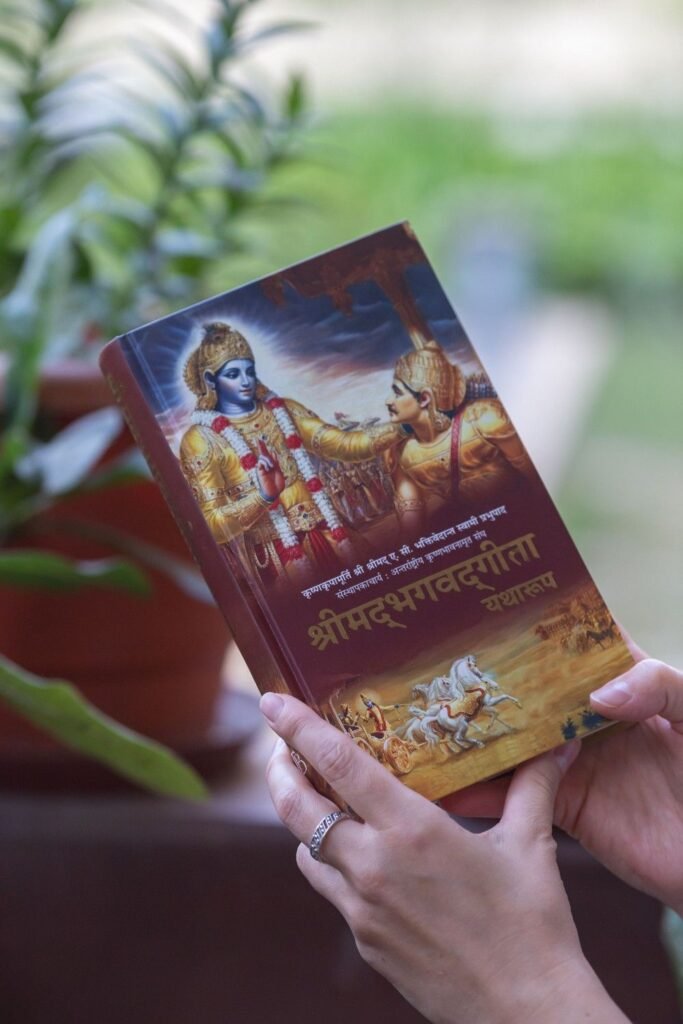
Bhagavad Gita 4.31
यज्ञशिष्टामृतभुजो यान्ति ब्रह्म सनातनम्। नायं लोकोऽस्त्ययज्ञस्य कुतो़ऽन्यः कुरुसत्तम।।4.31।।
yajña-śhiṣhṭāmṛita-bhujo yānti brahma sanātanam nāyaṁ loko ’styayajñasya kuto ’nyaḥ kuru-sattama
yajña-śhiṣhṭa amṛita-bhujaḥ—they partake of the nectarean remnants of sacrifice; yānti—go; brahma—the Absolute Truth; sanātanam—eternal; na—never; ayam—this; lokaḥ—planet; asti—is; ayajñasya—for one who performs no sacrifice; kutaḥ—how; anyaḥ—other (world); kuru-sat-tama—best of the Kurus, Arjun
Translation
Those who eat the remnants of the sacrifice, which are like nectar, go to the eternal Brahman. This world is not for the one who does not perform sacrifice; how then can they have the other, O Arjuna?
Commentary
4.31 यज्ञशिष्टामृतभुजः eaters of the nectar — the remnants of the sacrifice? यान्ति go? ब्रह्म Brahman? सनातनम् eternal? न not? अयम् this? लोकः world? अस्ति is? अयज्ञस्य of the nonsacrificer? कुतः how? अन्यः other? कुरुसत्तम O best of the Kurus.Commentary They go to the eternal Brahman in course of time after attaining the knowledge of the Self through purification of the mind by performing the above sacrifices. He who does not perform any of these is not fit even for this miserable world. How then can he hope to get a better world than this (Cf.III.13)
Bhagavad Gita 4.32
एवं बहुविधा यज्ञा वितता ब्रह्मणो मुखे। कर्मजान्विद्धि तान्सर्वानेवं ज्ञात्वा विमोक्ष्यसे।।4.32।।
evaṁ bahu-vidhā yajñā vitatā brahmaṇo mukhe karma-jān viddhi tān sarvān evaṁ jñātvā vimokṣhyase
evam—thus; bahu-vidhāḥ—various kinds of; yajñāḥ—sacrifices; vitatāḥ—have been described; brahmaṇaḥ—of the Vedas; mukhe—through the mouth; karma-jān—originating from works; viddhi—know; tān—them; sarvān—all; evam—thus; jñātvā—having known; vimokṣhyase—you shall be liberated
Translation
Thus, manifold sacrifices are spread out before Brahman at the face of Brahman. Know them all to be born of action, and thus knowing, you shall be liberated.
Commentary
4.32 एवम् thus? बहुविधाः manifold? यज्ञाः sacrifices? वितताः are spread? ब्रह्मणः of Brahman (or of the Veda)? मुखे in the face? कर्मजान् born of action? विद्धि know (thou)? तान् them? सर्वान् all? एवम् thus? ज्ञात्वा having known? विमोक्ष्यसे thou shalt be liberated.Commentary The word Brahmanah has also been interpreted to mean In the Vedas.Various kinds of sacrifices are spread out at the mouth of Brahman? i.e.? they are known from the Vedas. Know that they are born of action? because the Self is beyond action. If you realise that these actions do not concern me? they are not my actin? and I am actionless? you will surely be liberated from the bondage of Samsara by this right knowledge. (Cf.IX.27XIII.15)
Bhagavad Gita 4.33
श्रेयान्द्रव्यमयाद्यज्ञाज्ज्ञानयज्ञः परन्तप। सर्वं कर्माखिलं पार्थ ज्ञाने परिसमाप्यते।।4.33।।
śhreyān dravya-mayād yajñāj jñāna-yajñaḥ parantapa sarvaṁ karmākhilaṁ pārtha jñāne parisamāpyate
śhreyān—superior; dravya-mayāt—of material possessions; yajñāt—than the sacrifice; jñāna-yajñaḥ—sacrifice performed in knowledge; parantapa—subduer of enemies, Arjun; sarvam—all; karma—works; akhilam—all; pārtha—Arjun, the son of Pritha; jñāne—in knowledge; parisamāpyate—culminate
Translation
Superior is wisdom-sacrifice to the sacrifice with objects, O Parantapa (scorcher of the foes). All actions in their entirety, O Arjuna, culminate in knowledge.
Commentary
4.33 श्रेयान् superior? द्रव्यमयात् with objects? यज्ञात् than sacrifice? ज्ञानयज्ञः knowledgesacrifice? परन्तप O Parantapa? सर्वम् all? कर्म action? अखिलम् in its entirely? पार्थ O Partha? ज्ञाने in knowledge? परिसमाप्यते is culminated.Commentary Sacrifices with material objects cause material effects and bring the sacrificer to this world for the enjoyment of the fruits? while wisdomsacrifice leads to Moksha. Therefore wisdomsacrifice is superior to the sacrifice performed with material objects. Just as rivers join the ocean? so do all actions join knowledge? i.e.? they culminate in knowledge. All actions purify the heart and lead to the dawn of knowledge of the Self.All actions that are performed as offerings unto the Lord with their fruits are contained in the knowledge of Brahman. (Cf.IX.15X.25XVIII.70)
Bhagavad Gita 4.34
तद्विद्धि प्रणिपातेन परिप्रश्नेन सेवया। उपदेक्ष्यन्ति ते ज्ञानं ज्ञानिनस्तत्त्वदर्शिनः।।4.34।।
tad viddhi praṇipātena paripraśhnena sevayā upadekṣhyanti te jñānaṁ jñāninas tattva-darśhinaḥ
tat—the Truth; viddhi—try to learn; praṇipātena—by approaching a spiritual master; paripraśhnena—by humble inquiries; sevayā—by rendering service; upadekṣhyanti—can impart; te—unto you; jñānam—knowledge; jñāninaḥ—the enlightened; tattva-darśhinaḥ—those who have realized the Truth
Translation
Know that the wise who have realized the truth will instruct thee in that knowledge through long prostration, supplication, and service.
Commentary
4.34 तत् That? विद्धि know? प्रणिपातेन by long prostration? परिप्रश्नेन by estion? सेवया by service? उपदेक्ष्यन्ति will instruct? ते to thee? ज्ञानम् knowledge? ज्ञानिनः the wise? तत्त्वदर्शिनः those who have realised the Truth.Commentary Go to the teachers (those who are well versed in the scriptures dealing with Brahman or Brahmasrotris? and who are established in Brahman or Brahmanishthas). Prostrate yourself before them with profound humility and perfect devotion. Ask them estions? O venerable Guru What is the cause of bondage How can I get liberation What is the nature of ignorance What is the nature of knowledge What is the AntarangaSadhana (inward spiritual practice) for attaining Selfrealisation Serve the Guru wholeheartedly. A teacher who is versed in the scriptures (Sastras) but who has no direct Selfrealisaiton will not be able to help you in the attainment of the knowledge of the Self. He who has knowledge of the scriptures and who is also established in Brahman will be able to instruct thee in that knowledge and help thee in the attainment of Selfrealisation. Mere prostrations alone will not do. They may be tinged with hypocrisy. You must have perfect faith in your Guru and his teaching. You must serve him wholeheartedly with great devotion. Now hypocrisy is not possible.
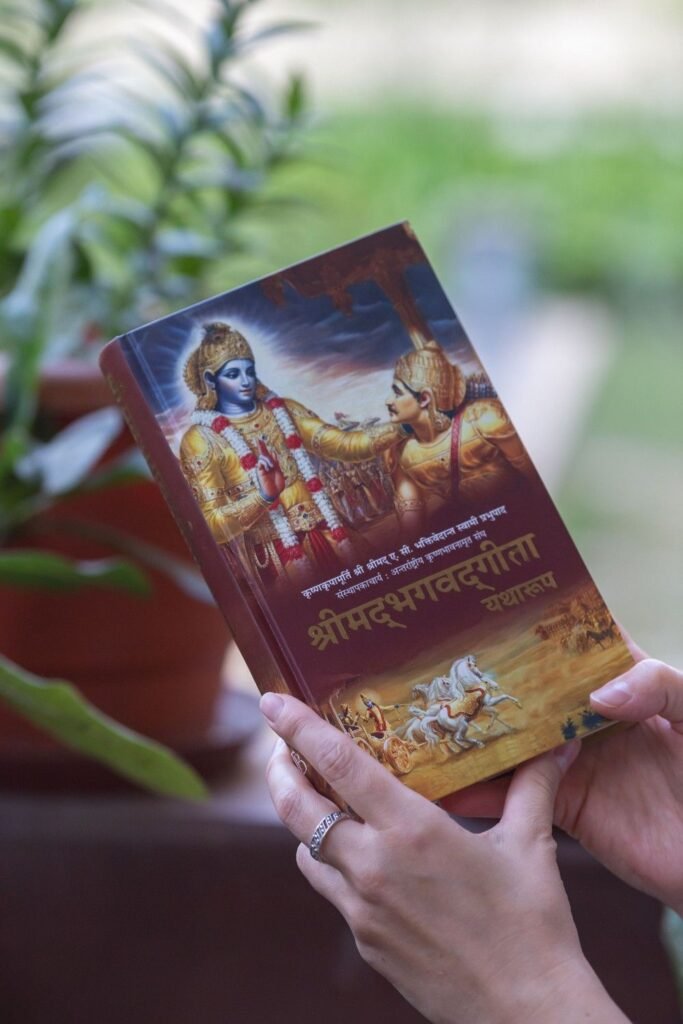
Bhagavad Gita 4.35
यज्ज्ञात्वा न पुनर्मोहमेवं यास्यसि पाण्डव। येन भूतान्यशेषेण द्रक्ष्यस्यात्मन्यथो मयि।।4.35।।
yaj jñātvā na punar moham evaṁ yāsyasi pāṇḍava yena bhūtānyaśheṣheṇa drakṣhyasyātmanyatho mayi
yat—which; jñātvā—having known; na—never; punaḥ—again; moham—delusion; evam—like this; yāsyasi—you shall get; pāṇḍava—Arjun, the son of Pandu; yena—by this; bhūtāni—living beings; aśheṣhāṇi—all; drakṣhyasi—you will see; ātmani—within me (Shree Krishna); atho—that is to say; mayi—in me
Translation
Knowing that thou shalt not, O Arjuna, again be deluded like this; and by that thou shalt see all beings in thyself and also in me.
Commentary
4.35 यत् which? ज्ञात्वा having known? न not? पुनः again? मोहम् delusion? एवम् thus? यास्यसि will get? पाण्डव O Pandava? येन by this? भूतानि beings? अशेषेण all? द्रक्ष्यसि (thou) shalt see? आत्मनि in (thy) Self? अथो also? मयि in Me.Commentary That? the knowledge of the Self mentioned in the previous verse? that is to be learnt from the Brahmanishtha Guru through prostration? estioning and service. When you acire this knowledge you will not be again subject to confusion or error. You will behold that underlying basic unity. You will behold or directly cognise through internal experience or intuition that all beings from the Creator down to a blade of grass exist in your own Self and also in Me. (Cf.IX.15XVIII.20)
Bhagavad Gita 4.36
अपि चेदसि पापेभ्यः सर्वेभ्यः पापकृत्तमः। सर्वं ज्ञानप्लवेनैव वृजिनं सन्तरिष्यसि।।4.36।।
api ched asi pāpebhyaḥ sarvebhyaḥ pāpa-kṛit-tamaḥ sarvaṁ jñāna-plavenaiva vṛijinaṁ santariṣhyasi
api—even; chet—if; asi—you are; pāpebhyaḥ—sinners; sarvebhyaḥ—of all; pāpa-kṛit-tamaḥ—most sinful; sarvam—all; jñāna-plavena—by the boat of divine knowledge; eva—certainly; vṛijinam—sin; santariṣhyasi—you shall cross over
Translation
Even if thou art the most sinful of all sinners, yet thou shalt surely cross over all sins by the raft of knowledge.
Commentary
4.36 अपि even? चेत् if? असि (thou) art? पापेभ्यः than sinners? सर्वेभ्यः (than) all? पापकृत्तमः most sinful? सर्वम् all? ज्ञानप्लवेन by the raft of knowledge? एव alone? वृजिनम् sin? सन्तरिष्यसि (thou) shalt cross.Commentary You can cross the ocean of sin with the boat of the knowledge of the Self. (Cf.IX.30)
Bhagavad Gita 4.37
यथैधांसि समिद्धोऽग्निर्भस्मसात्कुरुतेऽर्जुन। ज्ञानाग्निः सर्वकर्माणि भस्मसात्कुरुते तथा।।4.37।।
yathaidhānsi samiddho ’gnir bhasma-sāt kurute ’rjuna jñānāgniḥ sarva-karmāṇi bhasma-sāt kurute tathā
yathā—as; edhānsi—firewood; samiddhaḥ—blazing; agniḥ—fire; bhasma-sāt—to ashes; kurute—turns; arjuna—Arjun; jñāna-agniḥ—the fire of knowledge; sarva-karmāṇi—all reactions from material activities; bhasma-sāt—to ashes; kurute—it turns; tathā—similarly
Translation
As the blazing fire reduces fuel to ashes, O Arjuna, so does the fire of knowledge reduce all actions to ash.
Commentary
4.37 यथा as? एधांसि fuel? समिद्धः blazing? अग्निः fire? भस्मसात्कुरुते reduces to ashes? अर्जुन O Arjuna? ज्ञानाग्निः fire of knowledge? सर्वकर्माणि all actions? भस्मसात्कुरुते reduces to ashes? तथा so.Commentary Just as the sees that are roasted cannot germinate? so also the actions that are burnt by the fire of knowledge cannot bear fruits? i.e.? cannot bring man to this world again for the enjoyment of the fruits of his actions. This is reducing actions to ashes. The actions lose their potency as they are burnt by the fire of knowledge. When the knowledge of the Self dawns? all actions with their results are burnt by the fire of that knowledge just as fuel is burnt by the fire. When there is no agencymentality (the idea I do this)? when there is no desire for the fruits? action is no action at all. It has lost its potency. The fire of knowledge can burn all actions except the Prarabdha Karma? or the result of the past action which has brought this body into existence and which has thus already begun to bear fruits or produce effects.According to some philosophers even the Prarabdha Karma is destroyed by the fire of knowledge. Sri Sankara says in his AparokshanubhutiIn the passage his actions are destroyed when the Supreme is realised the Veda expressly speaks of actions (Karmas) in the plural? in order to signify the destruction of even the Prarabdha.There are three kinds of Karmas or reaction to or fructification of past actions (1) Prarabdha? so much of the past actions as has given rise to the present birth? (2) Sanchita? the balance of the past actions that will give rise to future births — the storehouse of accumulated actions? and (3) Agami or Kriyamana? acts being done in the present life. If by the knowledge of the Self only the Sanchita and Agami were destroyed and not Prarabdha? the dual number would have been used and not the plural. (Sanskrit grammar has singular? dual and plural numbers). (Cf.IV.1019)
Bhagavad Gita 4.38
न हि ज्ञानेन सदृशं पवित्रमिह विद्यते। तत्स्वयं योगसंसिद्धः कालेनात्मनि विन्दति।।4.38।।
na hi jñānena sadṛiśhaṁ pavitramiha vidyate tatsvayaṁ yogasansiddhaḥ kālenātmani vindati
na—not; hi—certainly; jñānena—with divine knowledge; sadṛiśham—like; pavitram—pure; iha—in this world; vidyate—exists; tat—that; svayam—oneself; yoga—practice of yog; sansiddhaḥ—he who has attained perfection; kālena—in course of time; ātmani—wihtin the heart; vindati—finds
Translation
Verily, there is no purifier in this world like knowledge. He who is perfected in Yoga finds it within the Self in due time.
Commentary
4.38 न not? हि verily? ज्ञानेन to wisdom? सदृशम् like? पवित्रम् pure? इह here (in this world)? विद्यते is? तत् that? स्वयम् oneself? योगसंसिद्धः perfected in Yoga? कालेन in time? आत्मनि in the Self? विन्दति finds.Commentary There exists no purifier eal to knowledge of the Self. He who has attained perfection by the constant practice of Karma Yoga and Dhyana Yoga (the Yoga of meditation) will? after a time? find the knowledge of the Self in himself.
Bhagavad Gita 4.39
श्रद्धावाँल्लभते ज्ञानं तत्परः संयतेन्द्रियः। ज्ञानं लब्ध्वा परां शान्तिमचिरेणाधिगच्छति।।4.39।।
śhraddhāvān labhate jñānaṁ tat-paraḥ sanyatendriyaḥ jñānaṁ labdhvā parāṁ śhāntim achireṇādhigachchhati
śhraddhā-vān—a faithful person; labhate—achieves; jñānam—divine knowledge; tat-paraḥ—devoted (to that); sanyata—controlled; indriyaḥ—senses; jñānam—transcendental knowledge; labdhvā—having achieved; parām—supreme; śhāntim—peace; achireṇa—without delay; adhigachchhati—attains
Translation
The one who is full of faith, devoted to it, and has subdued their senses obtains this knowledge; and upon obtaining the knowledge, they attain the supreme peace immediately.
Commentary
4.39 श्रद्धावान् the man of faith? लभते obtains? ज्ञानम् knowledge? तत्परः devoted? संयतेन्द्रियः who has subdued the senses? ज्ञानम् knowledge? लब्ध्वा having obtained? पराम् supreme? शान्तिम् to peace? अचिरेण at once? अधिगच्छति attains.Commentary He who is full of faith? who constantly serves his Guru and hears his teachings? who has subdued the senses surely gets the knowledge and ickly attains the supreme peace or salvation (Moksha). All the above three alifications are indispensable for an aspirant if he wants to attain to the supreme peace of the Eternal ickly. One alifiaction alone will not suffice. (Cf.X.10?11)
Bhagavad Gita 4.40
अज्ञश्चाश्रद्दधानश्च संशयात्मा विनश्यति। नायं लोकोऽस्ति न परो न सुखं संशयात्मनः।।4.40।।
ajñaśh chāśhraddadhānaśh cha sanśhayātmā vinaśhyati nāyaṁ loko ’sti na paro na sukhaṁ sanśhayātmanaḥ
ajñaḥ—the ignorant; cha—and; aśhraddadhānaḥ—without faith; cha—and; sanśhaya—skeptical; ātmā—a person; vinaśhyati—falls down; na—never; ayam—in this; lokaḥ—world; asti—is; na—not; paraḥ—in the next; na—not; sukham—happiness; sanśhaya-ātmanaḥ—for the skeptical soul
Translation
The ignorant, the faithless, and the doubting self go to destruction; there is neither this world nor the other, nor happiness for the doubting one.
Commentary
4.40 अज्ञः the ignorant? च and? अश्रद्दधानः the faithless? च and? संशयात्मा the doubting self? विनश्यति goes to destruction? न not? अयम् this? लोकः world? अस्ति is? न not? परः the next? न not? सुखम् happiness? संशयात्मनः for the doubting self.Commentary The ignorant one who has no knowledge of the Self. The man without faith one who has no faith in his own self? in the scriptures and the teachings of his Guru.A man of doubting mind is the most sinful of all. His condition is very deplorable. He is full of doubts as regards the next world. He does not rejoice in this world also? as he is very suspicious. He has no happiness.

Bhagavad Gita 4.41
योगसंन्यस्तकर्माणं ज्ञानसंछिन्नसंशयम्। आत्मवन्तं न कर्माणि निबध्नन्ति धनञ्जय।।4.41।।
yoga-sannyasta-karmāṇaṁ jñāna-sañchhinna-sanśhayam ātmavantaṁ na karmāṇi nibadhnanti dhanañjaya
yoga-sannyasta-karmāṇam—those who renounce ritualistic karm, dedicating their body, mind, and soul to God; jñāna—by knowledge; sañchhinna—dispelled; sanśhayam—doubts; ātma-vantam—situated in knowledge of the self; na—not; karmāṇi—actions; nibadhnanti—bind; dhanañjaya—Arjun, the conqueror of wealth
Translation
He who has renounced actions through Yoga, whose doubts have been dispelled by knowledge, and who is self-possessed—such a one is not bound by actions, O Arjuna.
Commentary
4.41 योगसंन्यस्तकर्माणम् one who has renounced actions by Yoga? ज्ञानसंछिन्नसंशयम् one whose doubts are rent asunder by knowledge? आत्मवन्तम् possessing the self? न not? कर्माणि actions? निबध्नन्ति bind? धनञ्जय O Dhananjaya.Commentary Sri Madhusudana Sarasvati explains Atmavantam as always watchful.He who has attained to Selfrealisation renounces all actions by means of Yoga or the knowledge of Brahman. As he is established in the knowledge of the identity of the individual soul with the,Supreme Soul? all his doubts are cut asunder. Actions do not bind him as they are burnt in the fire of wisdom and as he is always watchful over himself. (Cf.II.48III.9IV.20)
Bhagavad Gita 4.42
तस्मादज्ञानसंभूतं हृत्स्थं ज्ञानासिनाऽऽत्मनः। छित्त्वैनं संशयं योगमातिष्ठोत्तिष्ठ भारत।।4.42।।
tasmād ajñāna-sambhūtaṁ hṛit-sthaṁ jñānāsinātmanaḥ chhittvainaṁ sanśhayaṁ yogam ātiṣhṭhottiṣhṭha bhārata
tasmāt—therefore; ajñāna-sambhūtam—born of ignorance; hṛit-stham—situated in the heart; jñāna—of knowledge; asinā—with the sword; ātmanaḥ—of the self; chhittvā—cut asunder; enam—this; sanśhayam—doubt; yogam—in karm yog; ātiṣhṭha—take shelter; uttiṣhṭha—arise; bhārata—Arjun, descendant of Bharat
Translation
Therefore, with the sword of knowledge (of the Self), cut asunder the doubt of the self, born of ignorance, residing in your heart, and take refuge in Yoga. Arise, O Arjuna!
Commentary
4.42 तस्मात् therefore? अज्ञानसंभूतम् born out of ignorance? हृत्स्थम् residing in the heart? ज्ञानासिना by the sword of knowledge? आत्मनः of the Self? छित्त्वा having cut? एनम् this? संशयम् doubt? योगम् Yoga? आत्तिष्ठ take refuge? उत्तिष्ठ arise? भारत O Bharata.Commentary Doubt causes a great deal of mental torment. It is most sinful. It is born of ignorance. Kill it ruthlessly with the knowledge of the Self. Now stand up and fight? O Arjuna.(This chapter is known by the names Jnana Yoga? Abhyasa Yoga and jnanakarmasannyasa Yoga also.)Thus in the Upanishads of the glorious Bhagavad Gita? the science of the Eternal? the scripture of Yoga? the dialogue between Sri Krishna and Arjuna? ends the fourth discourse entitledThe Yoga of the Division of Wisdom. ,


